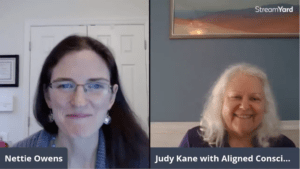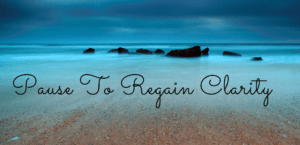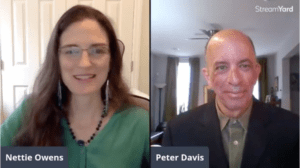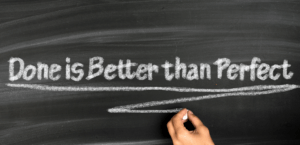What do businesses need to know right now about the protests and the impact it is having on business owners?
Dr. Herold is sharing what businesses need to know right now about the protests and the impact it’s having on business owners. As a black, Haitian-American, and owner of a business, he’s the perfect person to engage with in this conversation.
“We thought that COVID-19 was going to be the worst of what we had to endure in 2020, and then a video surfaced of a man named George Floyd. And we find ourselves asking how a 911 call for a counterfeit bill led to somebody dying on the streets of Minneapolis at the hands of a police officer.”
It was stated that it was standard protocol for the store to call 911 for the counterfeit bill. I think where the injustice and outrage came from is that people wondered where was the standard protocol for the police officers in apprehending and dealing with Mr. Floyd? That’s where the outrage came from.
The fact is that he was unable to breathe properly for eight-plus minutes, and you find yourself asking, “How did this happen?” He didn’t look different than anyone else – other than being an African American person. And he died. As a father, I’m thinking, “Man, you know what? This could be me. This could be my son or my daughter.”
This is also coming on the heels of Ahmaud Arbery, who was a young man that was shot down in Georgia, and then Breonna Taylor, who was a young lady that was a civil servant and was killed in her own home. And these things have been happening over the past few years. We all remember Trayvon Martin. In Baltimore, there was Freddie Gray.
Within the African American community, we find ourselves asking, “When is enough enough? When are we going to change the policies?” Of course, you can really legislate good thinking. If somebody has been raised to think differently about somebody, you can’t legislate that out of them; you can’t get rid of systemic racism. But you can put some policies in place to protect oppressed people.
“You can’t take out the systemic racism from people who have learned it from generation to generation, and that’s what they grew up with. But you can do things to protect a class of people who have been consistently and constantly oppressed and done so with public policy and with ignorance.”
As a business owner, how do you bring these conversations into your work? And what changes do you think need to be made for businesses to address – or not address – these things?
I was telling you earlier that you actually had a really good segment with Bob Graham. He said you have two scenarios. You can say that the business is not going to take any stance, so that you don’t alienate any clientele or staff members that might be working with you. And the alternative is to at least create a safe space so that at least you address it, and you address the elephant in the room and create a safe space for your employees and staff members so they can talk about it. This allows your employees to feel free to openly discuss and talk about the current situation without judgment and without malice.
Our company, MSI, we have at least done the latter. We have at least addressed it in an office meeting. Whenever there is any unrest or anything socially going on, we’ll bring it up. We do know that it does cause some tension in the office environment. It does cause stress, and it does cause people to react differently in the moment. Sometimes in our office meetings, we just want to clear the air, and we say, “Hey, look, we know this is going on. If anybody wants to talk about it, or if there’s anything that we can do to help anybody, whether it’s on the mental health side of it, or whether it’s anything that we can do to talk about it and address it – let us know.” I think that is something that shows the employees that they’re valuable to me not just as an employee – but as a human being who has feelings.
“It’s not just your employees that are dealing with these things; it’s your clientele also. They will see that you’re willing to open up these conversations, to hear the voices that, perhaps, have not been heard, and to be willing to accept that there are feelings that come along with this, and it’s not okay just to pretend that it doesn’t exist.”
Somebody said, “You know it’s not like there is that much more racism going on right now. It’s just being recorded more.” And I think that with Facebook and people sharing their feelings and this and that, things are just coming more to life. You know, the chickens are coming home to roost. If we’re all going to live in this world together, then we’re going to have to create these spaces to deal with them.
I’m remembering back to the civil rights movement, where you really didn’t see a lot of white America taking part in the marches. It was mostly the black people in Birmingham and the bus boycott. But it was when Bloody Sunday happened, when now Congressman John Lewis, along with countless others, were marching across the bridge peacefully, and they were beaten and attacked by police. It was recorded for the world to see.
And it was around that time that King also wrote a letter from the Birmingham jail, which I encourage everybody to read, because Dr. Martin Luther King, was writing to the white clergyman that were telling him that now is really not the time to protest and now is really not the time to march. They said he was becoming an agitator and that he was trying to disrupt things. The white clergy said that we have a peaceful society, a law-and-order society, and asked Dr. King why he was messing things up?
In his letter, which again, I encourage everybody to read because it’s a very long letter, but it’s very impactful, he asks, “When is the right time to protest?”
So often, the Negroes have heard, “Wait.” And wait has been synonymous with never when it comes to when is a good time to protest.
With the NFL not too long ago, there was a peaceful protest by Colin Kaepernick, which drew different sides on Facebook, and whether you agreed with what he did, he was still doing it peacefully. Now you see certain football players calling out certain teams because they’re like, “Hey, wait a minute. Now you’re with us and talking about the blackout because the streets are burning and all of this stuff.” Well, when somebody was trying to do it peacefully, they said it was about the flag. They said it was about all these other things when the very person that protested said it was about police brutality.
There is no one right way to protest that’s going to make everybody comfortable. I definitely do not agree with the violence and the looting. I do think that there are other outside agitators that are trying to corrupt the message that people are trying to do with their peaceful protests. But we have to look beyond that we and we have to call that out as well.
I do want to take my time to say that my best friend is a police officer. He’s in the first precinct in New York City, which is going crazy right now as well. I have countless patients that are police officers, and to peacefully protest does not mean that you’re against police. To peacefully protest and to demand justice for not just George Floyd, but to say, “Let’s change the policies so that those that are crossing the line are held accountable.” is not being against the police.
Let’s also celebrate the police because they have a heck of a hard time trying to bear the burdens of society. I feel like too many times when there’s something wrong with society; we want the police to fix it. But it’s not a police officer’s job to fix everything wrong with education. It’s not a police officer’s job to fix everything wrong in society. When things blow up like this, they’re looked at as the antagonist. And I do want to take this time to say, No, it’s not all police officers. The majority of people in law enforcement are doing the right thing, and they are walking with the protesters, and they are doing what they have to do to make sure that the communities in which they serve know that they have their back.
But what do we do when things go too far and certain people cross the line? How do we protect not just African Americans but all citizens, and I think that’s where the conversation is going. That’s why the world is waking up, and this is really a fight for humanity because no one person should die on the streets while being apprehended.
I’ll end with a story. I told you I was Haitian American, and my parents came here because there was a lot of political persecution in Haiti. One time, I was maybe 11,12 years old, I came home, and my grandmother, who was very strong, probably one of the strongest women that I know, was crying profusely. I said, “Man, what’s wrong with her? Why is she crying?” And she was saying, “Oh, they killed Claudie. They killed Claudie.” My mother had a cousin named Claudie, and because the government was unchecked, it got so corrupt that the dictator and the political class had their own secret police – kind of like a Gestapo. Those individuals that were corrupt police officers, they basically beat one of my cousins because he had a radio show that was talking about the government and talking about mobilizing; he wasn’t really talking bad, but about he was just trying to mobilize and trying to get laws passed, and they killed him. They brutally murdered him, And at that time, when I said, “Wow! Well, I’m glad that’s only happening in Haiti, and I’m glad that’s not happening in America.”
And now, as I’ve grown up, and I see stories unfolding, it’s happening in America. We’re better than this. We are the city on a hill. We are the beacon of light that all other countries want to come to. But if we want to live up to our values that every man is created equal and that every man can pursue life, liberty, and happiness, then we have to be able to have these conversations. And we have to be able to not only have these conversations but to demand justice. Because a lot of times the freedom is not given, it usually has to be demanded by the oppressor. That’s where we are right now. And I think we can do it peacefully.
But we can also engage the community so that we can increase voter turnout. And we can engage communities so that we start reducing all the other issues that we have in black America – such as housing prices, drugs in the community, and education. But right now, the light is shining on the criminal justice system.
Some things I would encourage everybody to read that letter from the Birmingham Jail. There’s a great Netflix movie that talks about the criminal justice system called “13th” on Netflix, and if you haven’t watched that, I would definitely watch that. There are groups in Baltimore that are trying to not just work together with the police, but also trying to reduce the violence that’s going on within the community. There’s one that’s called “We Are Us,” and it’s a bunch of men from all different faiths and backgrounds, and they walk the streets of Baltimore, and they’re talking to the young kids and trying to show them that there’s a better way. There are plenty of things going on. It’s may not be on CNN, Fox News, and MSNBC, but they’re happening. That’s what I think your community, meaning basically white America, should see – and not just look at what’s on the news, but really talk to people, open up the conversation and talk to people that are doing things in a positive way to improve the community, then we’re going to go a whole lot further than just seeing riots on TV.
3 Action Steps
- Allow your employees to feel free to openly discuss and talk about current situations without judgment and without malice.
- Recognize that people may feel stressed or react differently in the moment based on the current situation.
- Be willing to open up conversations with people that may not have had their voices heard..
Connect with Dr. Herold at on LinkedIn.
Please comment below. I would love to hear from you.














No comments yet.